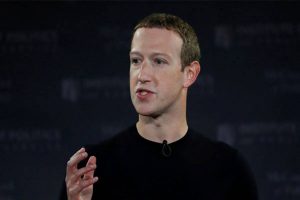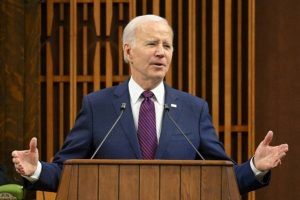Meta CEO Mark Zuckerberg has accused the Biden administration of pressuring Facebook into censoring content related to COVID-19 vaccines. Speaking on the Joe Rogan Podcast, Zuckerberg detailed incidents where government officials allegedly pushed Facebook to remove posts, including those discussing vaccine side effects, which he claims were factual.
During the interview, Zuckerberg explained how the situation escalated during the vaccine rollout under the Biden administration. “I’m generally supportive of vaccine programs—they’re more positive than negative overall—but the government’s approach was extreme,” Zuckerberg said. “They pressured us to take down content that was honestly true. For example, they insisted we remove anything mentioning vaccine side effects.”
Zuckerberg stated that Facebook resisted these demands when the content in question was accurate or fell under humor and satire. He recalled a specific example: “They wanted us to remove a meme of Leonardo DiCaprio joking about future class-action lawsuits related to vaccines. We refused, saying we wouldn’t take down humor or truthful posts.”
According to Zuckerberg, the administration’s frustrations culminated in a public statement by President Biden, implying platforms like Facebook were responsible for spreading misinformation that “killed people.” Following this, Zuckerberg claims Facebook faced intense scrutiny: “After that, different government agencies and branches began investigating us. It was brutal.”
Zuckerberg mentioned that Facebook produced extensive documentation related to the government’s involvement, much of which is now in the public domain. He highlighted that government officials allegedly contacted Facebook staff, using aggressive tactics like yelling and cursing to enforce compliance.
In light of these experiences, Zuckerberg announced changes to how Meta handles content moderation. According to the New York Post, Meta has closed its U.S.-based fact-checking operation and introduced a “Community Notes” system, inspired by the approach used by X (formerly Twitter). This system allows users to collaboratively fact-check and contextualize information on the platform, aiming to reduce the potential for centralized censorship.
Zuckerberg’s revelations have fueled ongoing debates about the balance between combating misinformation and preserving freedom of speech online. These claims add to the scrutiny surrounding government influence on social media platforms and raise questions about the role of tech companies in moderating public discourse.
Meta’s shift toward a more decentralized model may mark a turning point in how platforms navigate the intersection of governance, free expression, and responsibility in the digital age.





